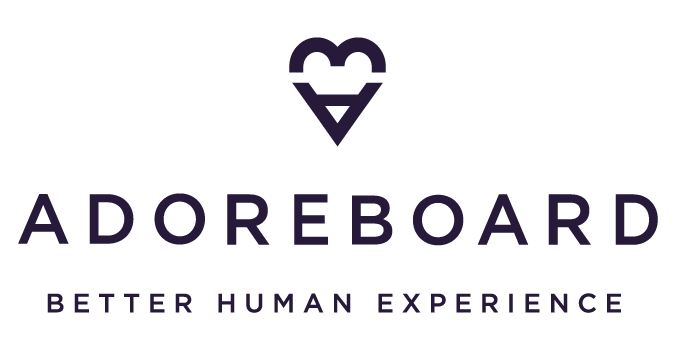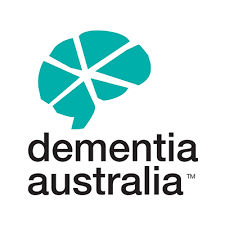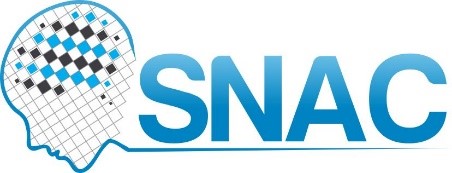Main Forum Day 2 | Thursday, 25 November 2021
|
| Time |
Agenda |
|
|
|
|
|
|
| 09:50 |
Forum Introduction By Chairperson
Highlights On Forum Day 2 Key Sessions |
|
|
|

Andrew Saunders
Board Director & Chair of Community Advisory Committee
Eastern Health |
|
 |
|
|
|
|
| 10:00 |
Emotion AI Case Study: AI Technology To Improve Patient Experience |
|
|
|

Jeffrey Woods
Chief Nursing Officer
Healthscope |
|
 |
|

Chris Johnston
CEO
Adoreboard |
|
 |
|
|
|
|
| 10:30 |
Use Of AI To Personalize Cancer Care At Icon Group
|
|
|
|
Icon becomes the first in Southern Hemisphere to deliver game-changing radiation therapy that personalizes cancer care using Varian’s Ethos therapy. It uses artificial intelligence to plan radiation therapy treatments that are designed to deliver a new level of accuracy where the technology allows clinicians to adjust how treatment is delivered by monitoring the patient’s internal and external anatomy. In this session, you will find out more on the capabilities of this world-leading radiation technology. |
|
|
|

Mark Middleton
CEO
Icon Group |
|
 |
|
|
|
|
| 11:00 |
Using AI In Medical Diagnostics |
|
|
|
According to a report published by the Guardian newspaper, AI is on par with human experts when making medical diagnoses using images. Advocates for increasing the use of AI in healthcare highlight benefits such as freeing time for better doctor-patient interactions and helping doctors develop tailored and targeted treatments.
This session will explore the potential of using AI in medical diagnostics. Points of discussion include:
- Benefits and risks of using AI in medical diagnostics
- The importance of ensuring that AI complements and not replaces the doctor-patient relationship
- How to safeguard against algorithm and machine failure in diagnostics
|
|
|
|

Dr. Sandeep Reddy
Associate Professor
Deakin University |
|
 |
|
|
|
|
| 11:30 |
Panel: Who Is Responsible For AI Misdiagnosis? Regulatory Perspectives On AI
|
|
|
|
This session will discuss the new legal and corporate challenges posed by the advent of AI in healthcare. For instance, disputes might arise from the autonomous nature of AI: how should the technology and by vicarious liability the manufacturers, share responsibility for wrongful or negligent diagnoses? Firming up legislation will be key to overcoming hospitals’ and doctors’ reluctance to adopt AI – and all its benefits – into regular practice. |
|
|
|
Panel Moderator:

Andrew Saunders
Board Director & Chair of Community Advisory Committee
Eastern Health
|
|
 |
|
Panelists:

Alison Choy Flannigan
Partner
Hall & Wilcox
|
|
 |
|

Dr. Sandeep Reddy
Associate Professor
Deakin University |
|
 |
|

Dr. Sonu Bhaskar
Founding Director
NSW Brain Clot Bank |
|
|
|

Mark Nevin
FAIDH
|
|
|
|

Paul Nolan
Lawyer
|
|
|
|
|
|
|
| 12:10 |
Identifying Patients At Risk Of Sepsis For Early Intervention With Predictive Algorithm And AI Profiling |
|
|
|
The knowledge- and labor-intensive nature of healthcare makes it ripe for AI disruption. One recent example, NSW Health utilizes artificial intelligence (AI) to detect complex patterns that are indiscernible to humans from the data of patients who did develop sepsis. By using machine learning and related AI techniques and displaying the information from a sepsis-predicting algorithm on an app, it can detect signs earlier within emergency department waiting room and immediately seek for response to ensure patient’s safety. |
|
|
|

Dr. Aldo F Saavedra
Senior Research Fellow, Health and Clinical Analytics, School of Public Health
The University of Sydney |
|
 |
|
|
|
|
| 12:40 |
Lunch Break |
|
|
|
|
|
|
| 13:30 |
Dementia Australia Case Study: World-First AI Avatar To Improve Dementia Care |
|
|
|
With almost half a million Australians living with dementia – which is projected to increase to 1.1 million people by 2058, it is crucial to improve the quality of dementia care which includes effective and engaging communication. Dementia Australia has launched its new generation immersive experience, Talk with Ted, to educate their care workers to better communicate with and support people living with dementia. By leveraging AI technology, it provides an online simulation of a typical communication experience between a care worker and someone living with dementia. |
|
|
|

Dr. Tanya Petrovich
Business Innovation Manager
Dementia Australia |
|
 |
|
|
|
|
| 14:00 |
Monash University And Alfred Hospital’s AI Superbug System: Supporting Super Bug Diagnosis, Treatment And Prevention |
|
|
| |
Superbugs are mutated forms of bacterium and viruses with no known treatments and lead to massive annual deaths in statistics. Monash University and Australia’s The Alfred Hospital has developed an artificial intelligence-based “Superbug” detection system that aims to diagnose, prevent and better treatment. The AI-based superbug detection system uses artificial intelligence technologies to predict the superbug’s existence in the human body. Eventually it would also help to create personalized treatment for patients who suffer from superbug evolved from some of the common diseases. |
|
|
|

Prof. Geoff Webb
Research Director, Monash Data Futures Institute
Monash University |
|
 |
|

Prof. Anton Peleg
Professor of Infectious Diseases and Microbiology
Monash University |
|
 |
|
|
|
|
| 14:30 |
AI In Computational Neurosurgery And Clinical Neurosciences |
|
|
| |
It is now clear that artificial intelligence models in conjunction with high-quality clinical data could bring an improved prognostic and diagnostic models in neurological disease and assist the healthcare setting with accurate clinical decision. In this session, you will learn how the core concept of artificial intelligence is able to harness its support to clinicians and neuroscience researchers and specialists in making critical clinical decisions. |
|
|
|

Prof. Antonio Di Ieva
Consultant Neurosurgeon
Macquarie Neurosurgery |
|
 |
|
|
|
|
| 15:00 |
Designing Futuristic Telemedicine Using Artificial Intelligence And Robotics In The COVID-19 Era |
|
|
|
AI is shifting healthcare away from reactive care delivered only in the hospital or doctor’s office, to continuous health and wellness. The Royal Prince Alfred Hospital (RPA) has launched its RPA Virtual Hospital where its intensive care unit-quality monitor patients who shown mild symptoms of COVID-19 from home with the assistance of AI technology that analyze the condition of its patients to determine on next treatment to be taken. Learn more about AI’s impact on telehealth and how it makes it possible for the patient to be the ‘point of care’ in this session. |
|
|
|

Dr. Sonu Bhaskar
Founding Director
NSW Brain Clot Bank |
|
|
|
|
|
|
| 15:30 |
Privacy Preserving AI Medical Imaging With Federated Learning |
|
|
|

Dr. Ettikan Karuppiah
Director/Technologist
NVIDIA |
|
 |
|

Dr. Chenyu (Tim) Wang
Director of Operations
Sydney Neuroimaging Analysis Centre (SNAC) |
|
 |
|

Dr. Werner Scholz
CTO and Head of R&D
XENON |
|
 |
|
|
|
|
| 16:00 |
Closing Remarks By Forum Chairperson |
|
|
|

Andrew Saunders
Board Director & Chair of Community Advisory Committee
Eastern Health |
|
 |
|
|
|
|